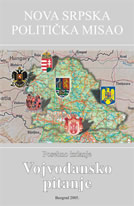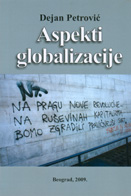| NSPM in English | |||
An Apology for Srebrenica |
 |
 |
 |
| недеља, 18. април 2010. | |
|
(The Wall Street Journal, 16.4.2010)
This opened up a fierce national debate on the misdeeds of the Slobodan Milosevic regime. It also increased regional awareness of the critical importance of reconciliation, a core European value my country wholeheartedly embraced following the restoration of Serbian democracy on Oct. 5, 2000. For us, reconciliation is seen as a moral imperative to tell the truth—the unadorned, factual, horrible truth of the bloodshed that must never return to our lands. We also understand it as being a categorical rejection of the individuals who falsely claimed to act in our name, and a repudiation of the policies that promoted violence and hatred. Finally, reconciliation contributes to restoring to prominence the fact that for most of our shared history, going back many hundreds of years, interethnic and faith-based pluralism was the norm in the Western Balkans. Our similarities far outweighed our differences – as they still do – and while discrimination was not unheard of, it was far from rampant. In short, reconciliation helps us take back our past from the nefarious fear-mongers still lurking in our midst. It is against this backdrop that the Serbian parliament on March 30 adopted a historic declaration on Srebrenica that unequivocally condemned the war crimes that took place there. The declaration is the product of my country's absolute dedication to restore trust and promote friendship and understanding between two proud nations in our region and, more broadly, two great religious traditions present throughout our increasingly interdependent world. As such, this unprecedented document – the first of its kind in the Western Balkans – extends profound condolences and sincere apologies to the families of the Bosnian Muslim victims. Moreover, it reaffirms full support for the efforts of the Serbian government to successfully complete its cooperation with the International Criminal Tribunal for the former Yugoslavia, which includes locating, arresting and extraditing the Bosnian Serb wartime commander who has been indicted for his role in Srebrenica, Gen. Ratko Mladic. The declaration also underlines Serbia's commitment to respect the territorial integrity and sovereignty of Bosnia and Herzegovina. We hope it will help facilitate a process for its three constituent peoples to come together in agreement on necessary internal reforms. Silence is no longer acceptable, and neither is hiding behind outdated wartime rhetoric. The era of accountability in our part of the world has begun, and it is here to stay. We have demonstrated the courage to be the first to apologize for heinous atrocities that were committed by all sides in the Yugoslav civil wars. Accepting one's share of responsibility for what happened in the past is an integral part of the democratic consolidation of every country in our neighborhood. This is an indispensable step in the advancement of sustainable peace and stability in the Western Balkans. By taking the lead in regional reconciliation, Serbia has opened the door for others to step through, in the hope that we can together build a prosperous and inclusive future as members of the European Union – our central strategic priority. This is our vision, and we will see it through, come what may. |
Остали чланци у рубрици
- Playing With Fire in Ukraine
- Kosovo as a res extra commercium and the alchemy of colonization
- The Balkans XX years after NATO aggression: the case of the Republic of Srpska – past, present and future
- Из архиве - Remarks Before the Foreign Affairs Committee of the European Parliament
- Dysfunction in the Balkans - Can the Post-Yugoslav Settlement Survive?
- Serbia’s latest would-be savior is a modernizer, a strongman - or both
- Why the Ukraine Crisis Is the West’s Fault
- The Ghosts of World War I Circle over Ukraine
- Nato's action plan in Ukraine is right out of Dr Strangelove
- Why Yanukovych Said No to Europe

.jpg)








 The massacre of thousands of Bosnian Muslims in the town of Srebrenica in July 1995 constituted one of the most tragic chapters of the Yugoslav civil wars of the 1990s. In order to show that Serbia mourns for all the victims, I traveled to Srebrenica a year after I was first elected president of Serbia to stand with the survivors and bow to victims on the 10th anniversary of that terrible atrocity.
The massacre of thousands of Bosnian Muslims in the town of Srebrenica in July 1995 constituted one of the most tragic chapters of the Yugoslav civil wars of the 1990s. In order to show that Serbia mourns for all the victims, I traveled to Srebrenica a year after I was first elected president of Serbia to stand with the survivors and bow to victims on the 10th anniversary of that terrible atrocity.













